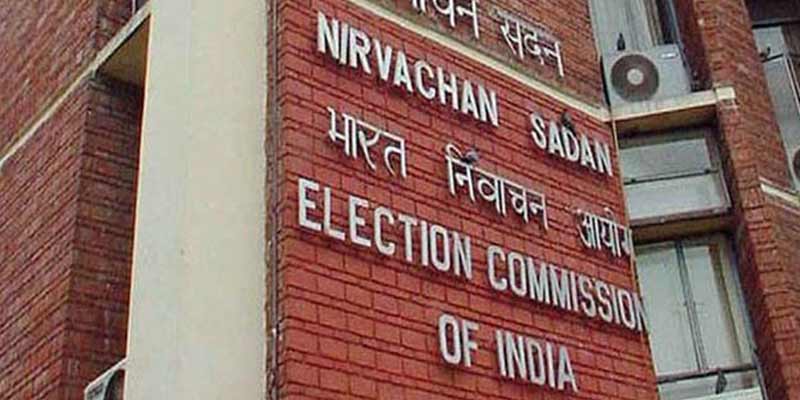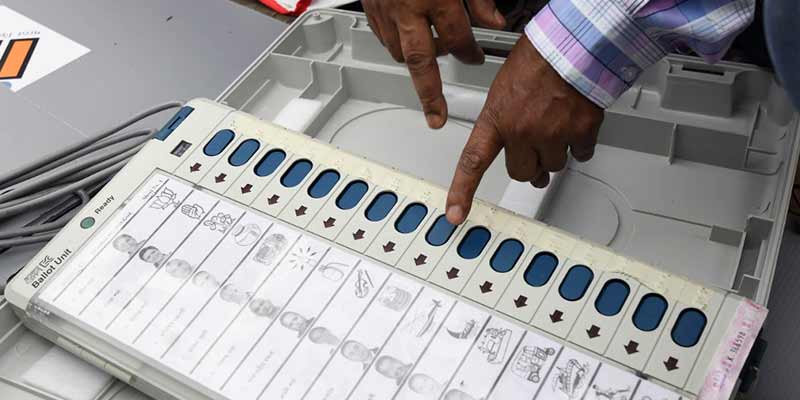- India
- Aug 10
The need for upholding autonomy of the Election Commission
• The government introduced a new Bill in the Rajya Sabha that seeks to replace the Chief Justice of India with a Union minister in the panel for selection of Chief Election Commissioner and election commissioners.
• Law Minister Arjun Ram Meghwal moved the Chief Election Commissioner and other Election Commissioners (Appointment Conditions of Service and Term of Office) Bill, 2023 in the Upper House on August 10.
• The Bill comes months after the Supreme Court ruled that the selection panel should comprise the Prime Minister, the Leader of Opposition in the Lok Sabha and the Chief Justice of India (CJI), till a law is framed by Parliament on the appointment of the Chief Election Commissioner and election commissioners.
• According to the Bill, Chief Election Commissioners and election commissioners will be selected by a three-member panel headed by the Prime Minister and comprising the leader of opposition in the Lok Sabha and a Union minister.
Why the govt brings in new Bill?
• The matters regarding conditions of service of Chief Election Commissioner and other election commissioners are presently governed by the Election Commission (Conditions of Service of Election Commissioners and Transaction of Business) Act, 1991.
• The said Act does not contain provisions regarding the qualifications, search committee for preparing a panel of persons for consideration and recommendation by the selection committee for appointment as Chief Election Commissioner and other election commissioners and other incidental provisions.
• In March, the Supreme Court ruled that the appointment of the Chief Election Commissioner and election commissioners will be done by the President on the recommendation of a committee, comprising the Prime Minister, Leader of the Opposition in the Lok Sabha and the Chief Justice of India.
• The bench said the direction on the EC appointments will continue to hold good till a law on the issue is made by Parliament.
• The bench delivered its verdict on a batch of pleas seeking a collegium-like system for the appointment of election commissioners and the Chief Election Commissioner.
• The proposed Chief Election Commissioner and other Election Commissioners (Appointment, Conditions of Service and Term of Office) Bill, 2023 provides for appointment, qualifications, Search Committee, Selection Committee, term of office, salary, resignation and removal, leave, pension, etc of the Chief Election Commissioner and other election commissioners.
The Election Commission needs to be independent
• Indian democracy will work only when the institutions which have the responsibility to preserve democracy work. Each institution in our Constitution has its demarcated role, which can only be fulfilled if the people who are running these institutions are responsible.
• The people who run these institutions need to be accountable to the people, and therefore the process of selecting them has to ensure the independence of the institution.
• The Election Commission of India is an institution that has been created through the text of the Constitution. It is constitutionally an independent body. The role of the Election Commission of India is to ensure that the democratic process in India does not come to a standstill.
• To strengthen the democratic processes, the institution of the Election Commission needs to be independent and demonstrate transparency and accountability.
• Various state institutions supporting constitutional democracy have an independent mechanism for the appointment of its heads and members. The same is carried out with an object to keep them insulated from any external influence that allows them to remain neutral to carry on the assigned functions.
• An election commissioner is answerable to the nation. The people of the country look forward to him so that democracy is always preserved and fostered.
• A person, who is weak kneed before the powers that be, cannot be appointed as an election commissioner. A person, who is in a state of obligation or feels indebted to the one who appointed him, fails the nation and can have no place in the conduct of elections, forming the very foundation of the democracy.
• An independent person cannot be biased. Holding the scales evenly, even in the stormiest of times, not being servile to the powerful, but coming to the rescue of the weak and the wronged, who are otherwise in the right, would qualify as true independence.
• It is important that the appointment must not be overshadowed by even a perception that a ‘yes man’ will decide the fate of democracy and all that it promises.
• The electoral scene in the country is not what it was in the years immediately following the country becoming a Republic. Criminalisation of politics, with all its attendant evils, has become a nightmarish reality. The faith of the electorate in the very process, which underlies democracy itself, stands shaken.
• The fate of the political parties and its candidates, and therefore, of democracy itself to a great measure is allowed to rest in the hands of the Election Commission.
• While there may be officers who assist the Commission, vitally important decisions have to be taken by those at the helm of the affairs. It is the Chief Election Commissioner and the election commissioners at whose table the buck must stop.
• Criminalisation of politics, a huge surge in the influence of money power, the role of certain sections of the media where they appear to have forgotten their invaluable role and have turned unashamedly partisan, call for the unavoidable and unpostponable filling up of the vacuum.
• The decisions taken by the Election Commission need to generate the trust of the people so that the sanctity of the democratic process is maintained.
• If the Election Commission starts showing any arbitrary decision-making, then the resulting situation would not just create doubt on the members of the Election Commission of being biased but would create fear in the minds of the common citizens that the democratic process is being compromised.
• Therefore, the Election Commission needs to be independent and fully insulated from any external or internal disrupting environment.
• The working of the Commission has to generate confidence in the minds of the people. In a country like India, where millions of people still struggle to fulfill their basic needs, it is their right to vote which gives them hope that they would elect a government that would help them in crossing the boundaries of deprivation.
• If this power is compromised or taken away even by one slight bad decision or biases of the members of the Election Commission, it would undoubtedly attack the very basic structure of Indian democracy.
• Democracy can succeed only insofar as all stakeholders uncompromisingly work at it and the most important aspect of democracy is the very process, the electoral process, the purity of which alone will truly reflect the will of the people so that the fruits of democracy are truly reaped.
• The essential hallmark of a genuine democracy is the transformation of the ‘Ruled’ into a citizenry clothed with rights which in the case of the Indian Constitution also consist of Fundamental Rights, which are also being freely exercised and the concomitant and radical change of the ruler from an ‘Emperor’ to a public servant.
Manorama Yearbook app is now available on Google Play Store and iOS App Store


